MANILA – The Supreme Court (SC) on Tuesday (14 Jan 2025) issued temporary restraining orders (TROs) halting the Commission on Elections (Comelec) from enforcing its decisions to disqualify or reject the certificates of candidacy (COCs) of five individuals seeking to run for various positions in the upcoming national and local elections.
During its first en banc session for the year, the SC granted TROs that prevent the Comelec from declaring Subair Guinthum Mustapha and Charles Savellano as nuisance candidates in their bids for Senate and Ilocos Sur 1st District representative, respectively.
The Court instructed the Comelec to respond to the petitions of Mustapha and Savellano within five days of receiving the notice, with a requirement for personal service and the filing of a resolution and comment.
In another case, the SC granted a TRO in favor of Chito Bulatao Balintay, an indigenous peoples’ representative from Zambales, who had challenged Comelec’s decision rejecting his COC for Zambales governor. This ruling effectively mandates the poll body to accept and process his COC.
The SC also issued TROs for Edgar Erice, who was disqualified by the Comelec in his bid for Caloocan City’s 2nd District representative, and Florendo de Ramos Ritualo Jr., who is contesting the cancellation of his COC for San Juan City’s 1st District Sangguniang Panlungsod (City Council) seat.
The Court directed the Comelec to file a comment on the cases of Balintay, Erice, and Ritualo within a non-extendible period of 10 days from receiving the notice.
ia/mnm
THE SUPREME Court has warned parents that excessive discipline that harms a child’s dignity is considered child abuse.
At the same time, the SC reiterated that disciplining children, even if it results in physical injuries, does not automatically amount to child abuse.
In a decision penned by Associate Justice Jhosep Lopez, the SC’s Second Division upheld the conviction of a father for child abuse after subjecting his 12-year-old daughter and 10-year-old son to violent and excessive discipline.
From 2017 to 2018, the father beat his children, including kicking his daughter, pulling her hair, striking her with a wooden rod with a nail, hitting them with a dustpan, and cursing at them repeatedly.
The father claimed these actions were meant to discipline his children for misbehavior, such as failing to eat lunch and losing money from their coin banks.
The Regional Trial Court and the Court of Appeals both found the father guilty of violating Republic Act No. 7610, or the Special Protection of Children Against Abuse, Exploitation, and Discrimination Act.
Under Section 3(b) of RA No. 7610, any act that debases, degrades, or demeans a child’s dignity is considered child abuse.
The father appealed to the SC, arguing that he had no intention of harming his children’s dignity.
However, the SC ruled that his actions went beyond reasonable discipline, showing a clear intent to harm the children’s dignity.
The SC emphasized that while parents have the right to discipline their children, such measures must not be violent, excessive, or disproportionate to their misbehavior.
The SC noted that without this specific intent, the offender cannot be held liable for child abuse but can be charged with other crimes under the Revised Penal Code.
The father was sentenced to four to six years in prison and fined.
MANILA — The Supreme Court (SC) clarified on Tuesday (12 Nov 2024) that its September ruling on the Bangsamoro Autonomous Region in Muslim Mindanao (BARMM) will go into effect, despite an appeal being filed.
SC spokesperson Camille Mae Sue Ting explained that the decision is “immediately executory,” meaning it must be fully implemented while the motion for reconsideration is pending.
“There would be no reason for the Court to say it was immediately executory if it intended otherwise,” Ting stated, emphasizing that the ruling was made in the context of the upcoming BARMM parliamentary elections, which cannot be delayed.
The Court upheld the constitutionality of Republic Act No. 11054, the Bangsamoro Organic Law (BOL), affirming that BARMM is not a separate state but an autonomous region within the Philippines. The law does not grant BARMM sovereignty or control over foreign policy, defense, or trade—matters which remain under national government jurisdiction.
However, the Court ruled that Sulu province is not part of BARMM, as it rejected the law’s ratification during the plebiscite. The Bangsamoro Attorney General’s Office has filed motions for reconsideration, seeking intervention and review of the decision.
Meanwhile, the Senate and House of Representatives are pushing separate bills to delay BARMM’s parliamentary elections from May 2025 to May 2026.
The Bangsamoro Organic Law, passed in July 2018, established BARMM after a series of plebiscites in 2019. While most areas ratified the law, Sulu did not, but was nonetheless included in the region, prompting its petition against the decision.
ia/mnm
By Junex Doronio
MANILA — The Supreme Court (SC) on Thursday (15 Aug 2024) clarified that the annual physical examination does not require a mandatory drug test, contrary to reports circulating on social media.
It denied claims that its Office of the Court Administrator (OCA) is mandating judges and court employees to undergo drug testing.
“The OCA Circular issued by the Court Administrator just mandated the annual physical examinations of judges and court personnel on or before Oct. 15, 2024,” SC spokesperson lawyer Camille Ting explained in a press conference.
She added that under the Judiciary Health Plan and their contract with their health service provider, drug tests will be conducted, but this has yet to be implemented.
“What we really require is just a basic annual physical examination, which just consists of blood tests, urinalysis, all because the Supreme Court would like to make sure that their judges and court personnel are healthy,” the SC spokesperson stressed.
(ia/mnm)
By Liza Soriano
MANILA — The Supreme Court has sided with the camp of Atty. Argel Cabatbat and declared him as the rightful representative of the Magsasaka Partylist.
In its decision, the High Court ruled that Soliman Villamin Jr., the respondent, cannot be considered the representative of the Magsasaka Partylist as he had already been removed as Magsasaka’s National Chairperson.
Moreover, the Supreme Court stated that the Commission on Elections (Comelec) should have denied due course to Villamin’s representation since he misrepresented himself as the National Chairperson of MIP.
“This Court finds that the COMELEC gravely abused its discretion when it focused on purely procedural matters and disregarded the substantive issues raised by MAGSASAKA in the proceedings below. It refused to acknowledge established party practice and substituted its mandate over that of MAGSASAKA, thereby unlawfully instituting Villamin as its National Chairperson,” the Supreme Court said in its decision.
The Court further stated that since Villamin was no longer the National Chairperson of Magsasaka, his nominee, Roberto Gerard L. Nazal Jr., could not have been validly proclaimed as Magsasaka’s Partylist Representative in the House of Representatives.
“The rightful owners of the Magsasaka Partylist are the Filipino farmers, and this victory in the Supreme Court is a victory for all our farmers,” Cabatbat said.
The MIP had filed a petition for Certiorari with an Application for Issuance of a Writ of Preliminary Injunction, Status Quo Ante, and/or Temporary Restraining Order, which was granted.
While the case was pending, Cabatbat, in his personal capacity, continued to provide assistance to Filipino farmers, ensuring their welfare and livelihood.
He assisted Ilocano farmers in Amai to bring their concerns to Malacañang after they were expelled from their land. Cabatbat also helped report the killings of farmers in Siaton, Negros Oriental, to the Commission on Human Rights (CHR) and the bulldozing of their homes.
With Cabatbat’s assistance, the farmers’ land in Coron, Palawan, and the lagoon belonging to the Tagbanua Indigenous People, which a foreigner had attempted to claim, were successfully reclaimed.
Cabatbat also challenged Executive Order No. 62 before the Supreme Court, opposing the reduction of tariffs on imported rice, which threatened to drive local farmers into financial hardship.
ia/mnm
By Liezelle Soriano
MANILA — A total of 183 examinees, or 21.45 percent, passed the first digitalized and regionalized special exams for the Shari’ah courts, which were conducted on April 28 and May 2, according to the Supreme Court.
There were 853 examinees, making it the largest number in history, according to the SC.
The top 10 passers were:
1. Nurhaifah Hadji Said Punginagina (86.75%)
2. Sittie Nasriyyah Gani Gubat (86.10%)
3. Sittie Fairoza Yahya Alonto (86.025%)
4. Jonaina Diamla Suwalawan-Hadjinoor (85.575%)
5. Ayesha Aminah Alonto Mambuay (85.35%)
6. Fatimah Sohra Lucman Usodan (85.10%)
7. Aznairah Orpilla Acmad (84.875%)
8. Abdulwasi Aleem Barapangcat (84.40%)
9. Saaduddin Sharief Abdulmalik (84.30%)
10. Maria Belen Arceno Al-Namit (83.75%)
10. Normalah Pangcoga Said (83.75%)
Supreme Court Associate Justice Maria Filomena Singh was the SBE chairperson this year. It is the first time that a sitting member of the SC has chaired this exam.
The Oath Taking and Roll Signing Ceremonies of the successful SBE passers will be held on August 14, 2024, at the Manila Hotel, according to the SC.
The next SBE will be held in 2025 and will be chaired by Associate Justice Antonio T. Kho, Jr.
(el Amigo/mnm)
By Liezelle Soriano
MANILA — The Supreme Court has announced the establishment of a “Judiciary Integrity Email,” allowing the public to report corrupt judges and lawyers through email.
“In our commitment to eradicate corruption in our courts, we have created the email address integrity@judiciary.gov.ph for the public to send actionable information regarding any violations of anti-graft laws, our Code of Judicial Responsibility, and other relevant laws by any judge, justice, or court personnel,” reads Memorandum Order No. 72-2024.
This initiative follows the suspension of a judge and an employee from Pasay City due to bribery allegations.
“The public is advised that actionable information is often used as a basis for entrapment operations to eliminate corruption in the judiciary. Therefore, posting such information on social media or any public platform prematurely can hinder our ability to arrest and prosecute the offenders,” the memorandum added.
The Supreme Court assured that whistleblowers with credible information will receive proper protection. Lawyers involved in, advising on, or tolerating any form of corruption will face severe consequences.
(el Amigo/MNM)
By Liezelle Soriano
MANILA — The Supreme Court (SC) has ordered judges to conduct jail visitation at least once within their respective jurisdictions before May 31 to determine how the Persons Deprived of Liberty (PDLs) were being affected by the extreme heat.
“[A]ll concerned judges are DIRECTED to conduct jail visitation at least once within their respective jurisdictions on any day, not later than 31 May 2024, for the sole purpose of determining how PDLs are affected by this heat wave,” stated OCA Circular No. 131-2024.
According to the OCA, PDLs may also be negatively impacted by this extreme heat and weather conditions as they are detained in crowded facilities.
Within five calendar days after the jail visit of judges, they shall submit to their respective Executive Judges the required Court Jail Visitation and Inspection Report.
Philippine Atmospheric, Geophysical, and Astronomical Services Administration (PAGASA) has reported that high heat index are being experienced in recent days in parts of the country.
(el Amigo/ MNM)
MANILA — The Supreme Court has upheld the validity of the amnesty granted to former senator Antonio F. Trillanes IV by the government, declaring the revocation order issued by former President Rodrigo Duterte through Proclamation No. 527 as “unconstitutional.”
In its decision released on Wednesday, the Court asserted that a sitting Chief Executive lacks the authority to revoke an amnesty grant without the concurrence of Congress.
Furthermore, it emphasized the paramount importance of the Bill of Rights, affirming that neither the Government nor any of its officials, including the President, are exempt from adherence to the law.
The Court highlighted that the revocation of Trillanes’ amnesty, long after its finality and without prior notice, constituted a violation of his constitutional right to due process.
Duterte’s proclamation, aimed at reopening criminal cases against Trillanes that had been conclusively dismissed, was deemed to contravene the former lawmaker’s constitutional protections against ex post facto laws and double jeopardy, according to the Court.
Moreover, the Court found compelling evidence supporting Trillanes’ submission of his amnesty application.
“In weighing the exercise of presidential prerogatives against the safeguarding of citizens’ rights, the Constitution and the laws serve as the Court’s guiding principles,” the Supreme Court concluded.
(By el Amigo/MNM)
By Liezelle Soriano
MANILA — The Department of Justice (DOJ), Supreme Court, and the Department of the Interior and Local Government (DILG) have launched their 13th Justice Zone in Dagupan City, Pangasinan.
According to the DOJ, Justice Zones are strategic geographic locations focused on coordinating among the SC, DOJ, DILG, and other Justice Sector Coordinating Council (JSCC) partners for the speedy and efficient administration of justice within a local sphere.
Justice Secretary Jesus Crispin Boying Remulla assured that justice would always prevail.
“The Department of Justice is honored to be part of this momentous occasion where we can stand united once again with our partners in the swift and efficient administration of justice. On behalf of the Department, I want to reiterate my commitment that we will be relentless and unwavering more than ever in our pursuit of justice,” Remulla said.
Meanwhile, in his message delivered by DILG Undersecretary Lord A. Villanueva, DILG Secretary Benhur Abalos expressed solidarity in the cause of bringing accessible justice for all.
“Ang DILG, bilang isa sa mga bumubuo sa JSCC kasama ang SC at DOJ, ay patuloy na magta-trabaho para siguruhin ang paglaganap ng kapayapaan, kaayusan, at pagtataguyod ng hustisya para sa lahat sa ating bansa,” he said.
The DOJ, SC, and DILG are member agencies of the JSCC, which was institutionalized under the Philippine Development Plan (PDP) 2023-2028.
Justice Zones were also earlier installed in Quezon City, Cebu City, Davao City, Angeles City, Bacolod City, Naga City, Calamba City, Balanga City, Baguio City, Zamboanga City, Tagaytay City, and Puerto Princesa City.
(el Amigo/MNM)
By Liezelle Soriano
MANILA — In observance of International Day of Women, the Supreme Court has granted a “day off” to all women judges of the Philippines every 10th day of March.
A memorandum signed by Senior Associate Justice and Acting Chief Marvic Leonen on Monday 11 March 2024), said that the move was to promote the full and equal participation of women at all levels of the judiciary.
Leonen said that they dedicate the day to honor and highlight the leadership of women in “upholding the judiciary’s commitment to the rule of law, equality, and peaceful dispute resolutions.”
“As we commemorate this international day, I am inviting all justices, judges, and court personnel to unite and participate in observing the role that women in the judiciary play to strengthen our judicial institutions and uphold judicial integrity,” the memo read.
“Let us take this time to appreciate the resilience, persistence, and determination of our women judges to safeguard and promote meaningful freedoms for all people,” it added.
The United Nations has declared every 10th day of March as the International Day of Women Judges.
However, this year, the SC observed the International Day of Women Judges on Monday, March 11.
(el Amigo/MNM)
MANILA — The Supreme Court has upheld the Metropolitan Manila Development Authority’s (MMDA) Single Ticketing System (STS), effectively barring local government units (LGUs) in Metro Manila from issuing their traffic violation tickets.
In a decision authored by Associate Justice Alfredo Benjamin Caguioa and dated July 11, 2023, but only made public this week, the Court declared invalid the ordinances of 15 Metro Manila LGUs that permitted them to issue traffic violation tickets and ordinance violation receipts, as well as confiscate licenses of erring motorists.
However, the Court clarified that other local ordinances remain valid and unaffected by this ruling. It emphasized that the autonomy of LGUs is safeguarded by the structure of the MMDA as established by the MMDA Law.
The directive mandates LGUs to adhere to the STS, which standardizes and harmonizes fines and penalties for common traffic violations across the National Capital Region. Covering both major and secondary thoroughfares within Metro Manila’s jurisdictional bounds, the STS aims to streamline the enforcement of traffic regulations.
The decision resolves a petition filed by drivers and operators of public utility vehicles on December 21, 2006. The petition challenged the ticketing system of the 15 LGUs, arguing that their traffic code provisions contravene sections 29 and 62 of the Land Transportation Office law, which grants authority to the agency to confiscate driver’s licenses and issue prescribed receipts for violations of local traffic rules and regulations.
(el Amigo/MNM)
By Liezelle Soriano
MANILA — The Supreme Court has inaugurated a One-Stop Shop aimed at enhancing the systematic and efficient workflow of court processes.
This facility will cater to all concerns falling under the purview of the Judicial Records Office (JRO), Fiscal Management and Budget Office (FMBO-Cashier), and the Office of the Bar Confidant (OBC).
The Receiving Section of the JRO will maintain its primary function, with designated windows for filing initiatory pleadings and petitions, as well as subsequent pleadings.
Additionally, the One-Stop Shop will serve as a centralized hub for the Office of the Bar Confidant (OBC), facilitating requests for various certifications including bar membership, bar ratings, good standing (indicating no pending cases), verification, and bar examinations abroad. Moreover, it will handle administrative cases and complaints against lawyers.
During the “bar season,” extra windows will be added to accommodate the influx of bar applicants and candidates.
“The SC One-Stop Shop is in line with the Supreme Court’s Strategic Plan for Judicial Innovations (SPJI), prioritizing Efficiency, Innovation, and Access by consolidating frontline services, digitizing processes, and addressing public concerns in a single location,” stated the SC.
(el Amigo/MNM)
MANILA — The Supreme Court has taken a significant stride in safeguarding the rights of minors embroiled in legal proceedings by issuing comprehensive guidelines aimed at addressing discernment concerning children in conflict with the law.
Applauding the move, BHW party-list Representative Natasha Co, Chairperson of the House Committee on the Welfare of Children, lauded the wisdom exhibited by the SC justices in formulating these guidelines, emphasizing their importance in determining the cognitive capacity of minors accused or suspected of crimes.
“The guidelines address the challenging task of discerning whether minors understand the distinction between right and wrong and the consequences of their actions,” stated Co, highlighting the crucial role of clarity in balancing accountability with juvenile rights protection.
Contrary to the belief in blanket exemption for minors from criminal responsibility, the SC’s guidelines are stringent and exact, ensuring the protection of children’s rights throughout legal proceedings.
This development holds particular significance for frontline workers, including barangay officials, police officers, social workers, and educators. The prevalent misconception among both the public and law enforcement personnel regarding minors’ immunity to criminal liability underscores the importance of the SC’s guidelines in guiding stakeholders to effectively handle cases involving juvenile offenders.
Calling upon various government agencies, Co urged the Department of the Interior and Local Government, the Department of Social Welfare and Development, the Department of Education, and the Commission on Higher Education to widely disseminate the SC guidelines. Co stressed the necessity of ensuring the guidelines reach barangays, schools, and the media to educate both youth and parents about their rights and responsibilities under the law.
Moreover, Co emphasized the need to translate and annotate the guidelines into Filipino, English, Arabic, and regional languages to ensure accessibility across all segments of society, fostering greater understanding and compliance.
In conclusion, the issuance of definitive guidelines by the Supreme Court marks a significant milestone in the protection of children in conflict with the law. Co urged all stakeholders to uphold these guidelines diligently, thereby ensuring the fair and just treatment of minors within the legal system.
(el Amigo/MNM)
By Junex Doronio
MANILA — Apprehesive of the possible abolition of the Senate, former Supreme Court (SC) Associate Justice Antonio Carpio on Sunday (29 Jan 2024) said the House of Representatives could transform the government into a parliamentary system if an ongoing People’s Initiative (PI) campaign prospers.
Citing duplication of legislative work and the “inefficient populist” presidential form of government, some groups have aired preference for a unicameral legislature and under the parliamentary system of government is headed by a prime minister, who will be elected among members of parliament.
“They can convert the government to parliamentary kahit 24 senators will oppose, balewala ‘yan,” Carpio said in an interview with TeleRadyo Serbisyo.
It can be noted that the ongoing PI, one of three ways to revise the constitution, seeks that senators and congressmen vote jointly on charter change proposals, instead of separately as two houses of Congress.
This would mean the 24 senators will be outnumbered by the House of Representatives composed of 316 congressmen, 253 from congressional districts and 63 party-list representatives.
Carpio also agreed that the ongoing people’s initiative — which he has also dubbed as “unconstitutional” — would result in a “constitutional crisis” because the House could “abolish” the Senate.
“Under the proposal nila, the present people’s initiative, pag pumasa ‘yan, the House alone can convene as a constituent assembly to propose amendments to the constitution,” Carpio said.
Meanwhile, the Diskarteng Pinoy in Region 7 has expressed favor in charter change to push for economic reforms, with foreign investors coming into the country to provide jobs and high wages to Filipino workers.
The group is also campaigning for a parliamentary system of government, saying it has been proven effective in Canada, Australia, New Zealand, Japan, and many European countries.
(el Amigo/MNM)
By Junex Doronio
MANILA — Dubbed the “court of last resort,” various transport groups, including those from as far as Negros Island, trooped to the Supreme Court (SC) on Tuesday (23 Jan 2024) in time for its en banc session to call for the immediate issuance of a temporary restraining order against the public utility vehicle (PUV) modernization program.
Piston national president Mody Floranda expressed hope that the High Tribunal would issue a TRO before the end of January.
“Wala namang operator na gustong maging colorum yung kanilang mga sasakyan. Una, hindi pinapayagan ng LTFRB (Land Transportation Franchising and Regulatory Board (LTFRB) na mag-renew ng kanilang PA o temporary permit to operate,” Floranda said.
For his part, Manibela president Mar Valbuena said the government should focus on helping their sector.
“Itong gobyerno natin dapat pangalagaan niya yung mamamayan niya na huwag mawalan ng hanapbuhay. Kabaligtaran po ang ginagawa, tinatanggalan niya ng kabuhayan yung mga drivers at operators na mga kasamahan po natin,” Valbuena lamented.
Lilian Sembrano, chairwoman of the transport group KABACOD Negros, also aired solidarity with the transport groups in the National Capital Region (NCR).
“Lumuwas kami talaga dito, para makita ng Korte Suprema na hindi lang yung Metro Manila o NCR yung apektado,” Sembrano quipped.
It’s no retreat, no surrender for Piston and Floranda disclosed that they would mount another transport protest and were just finalizing its exact date.
As an act of defiance, Floranda said Piston members would continue plying their regular routes on February 1, despite a stern warning from regulators that all unconsolidated public utility jeepneys (PUJs) would be deemed “colorum” and apprehended.
(el Amigo/MNM)
By Liezelle Soriano
MANILA — The Supreme Court has announced that the 2024 Bar Examinations will take place on September 8, 11, and 15, maintaining its digitalized and regionalized format.
Associate Justice Mario Lopez serves as the 2024 Bar Chairperson.
“Considering the achievements and wealth of experience from previous years, the 2024 Bar Examinations #BarNiJLo2024 will remain digitalized and regionalized, featuring a condensed schedule and multiple examiners,” stated Bar Bulletin No. 1 issued on Monday (December 11, 2023).
“The 2024 Bar Examinations #MostValuableLaban will bridge the gap between the study and practice of law, guiding qualified examinees in their transition from law students to ‘practice-ready’ and ‘capable’ lawyers.”
The questions will focus on practical skills and jurisprudential perspectives to demonstrate analytical and problem-solving abilities, a strong sense of ethics, professionalism, empathy for clients, and a commitment to public service as minimum benchmarks for admission to the practice of law, as per the Supreme Court.
The seven (7) core subjects will remain (1) Political and Public International Law, (2) Commercial and Taxation Laws, (3) Civil Law, (4) Labor Law and Social Legislation, (5) Criminal Law, (6) Remedial Law, and (7) Legal and Judicial Ethics with Practical Exercises.
(ai/mnm)
MANILA — The government has taken the lead in organizing a summit on jail decongestion in Manila. Held Tuesday (05 Dec 2023), the summit is a collaborative effort involving the Supreme Court (SC) and various stakeholders.
The primary objective is to conduct a thorough analysis of the country’s penal system and formulate effective measures to alleviate prison congestion.
As highlighted in the 2022 annual audit report from the Bureau of Jail Management and Penology (BJMP), the Commission on Audit (COA) revealed that, among the 478 jail facilities nationwide, a significant 67.57 percent, or 323 facilities, are heavily congested.
These facilities exhibit an alarming occupancy rate of up to 2,739 percent and a congestion rate reaching 2,639 percent.
Visual documentation of the living conditions within the Manila City Jail in Sta. Cruz, Manila, vividly captures the extent of congestion faced by Persons Deprived of Liberty (PDL).
The images shown here underscore the urgent need for comprehensive reforms in the country’s penal infrastructure.
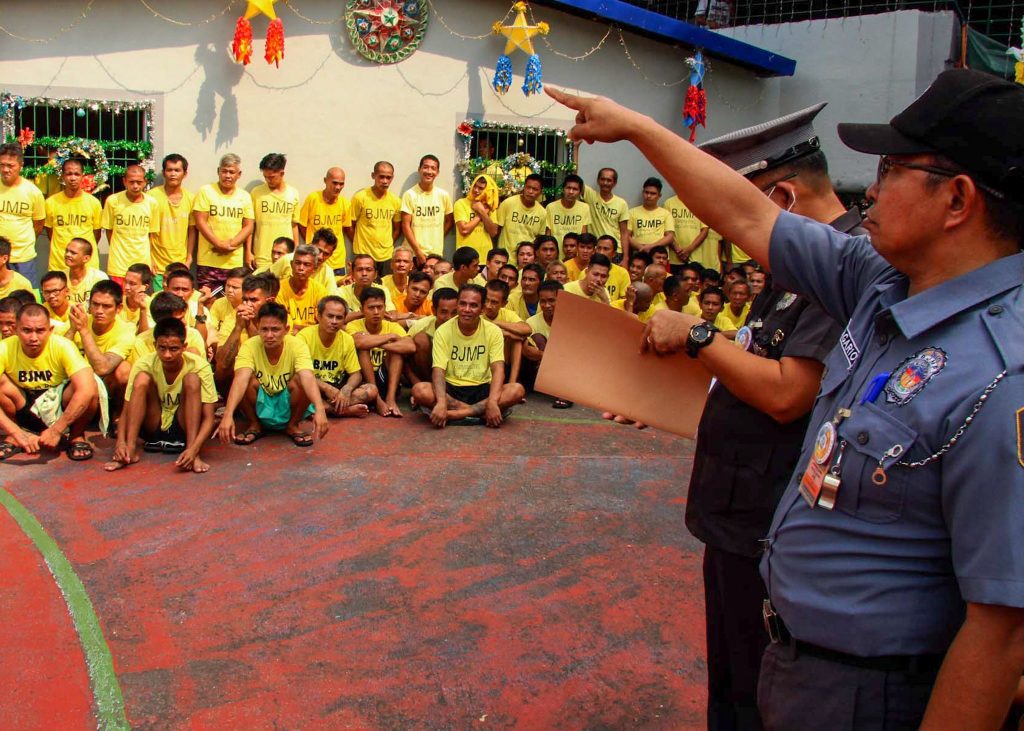
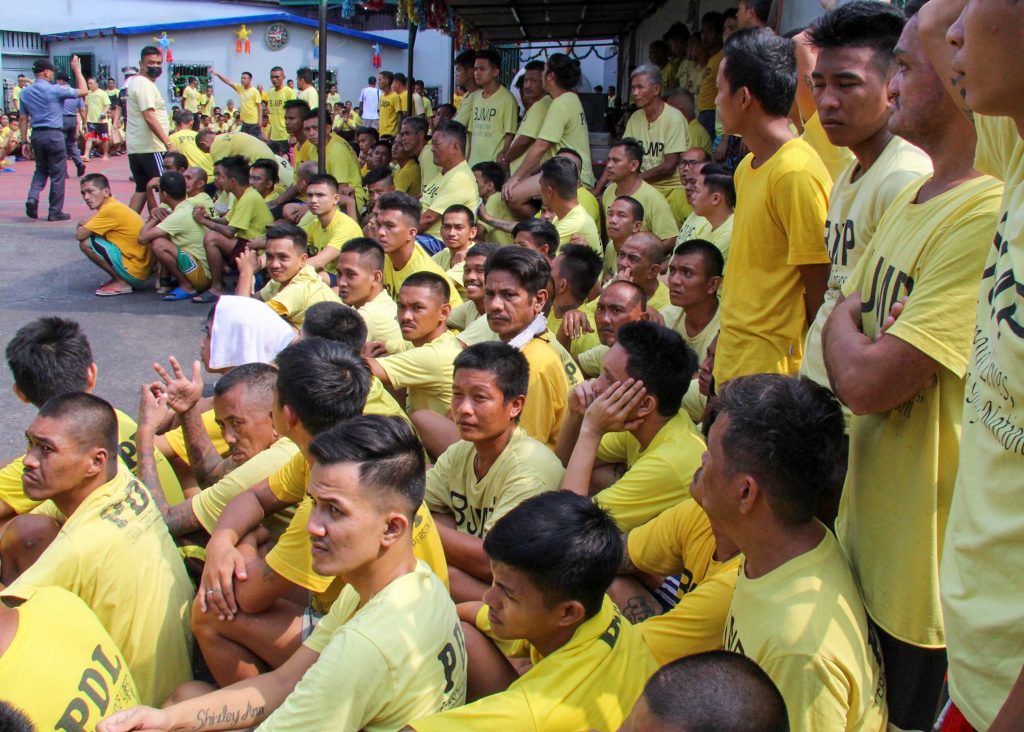
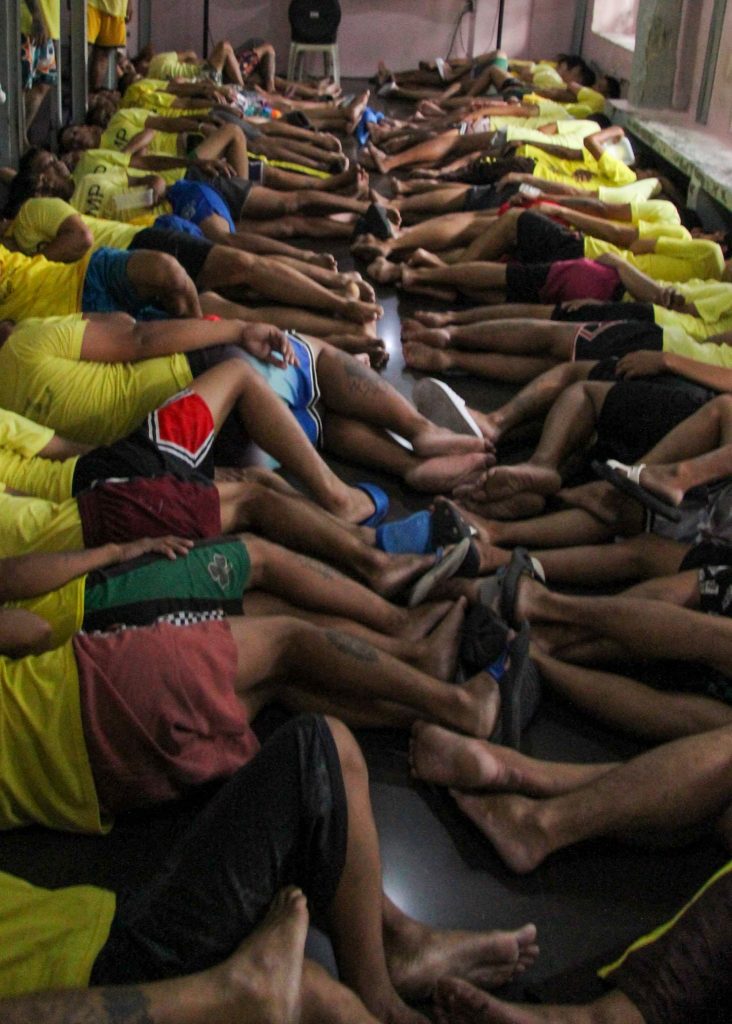
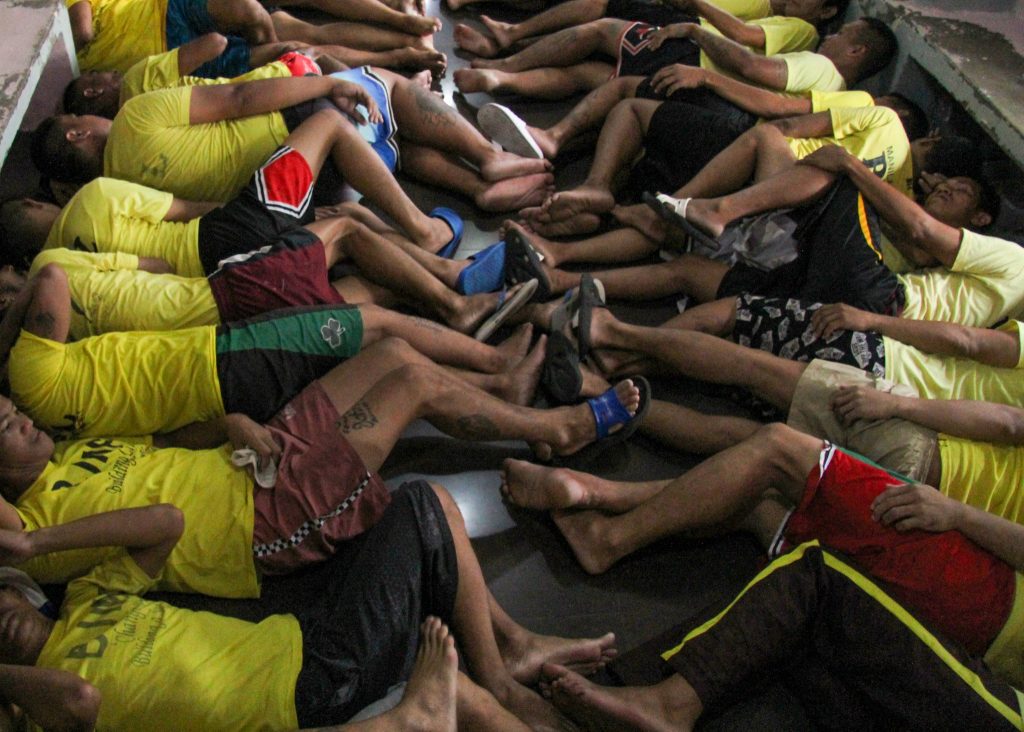
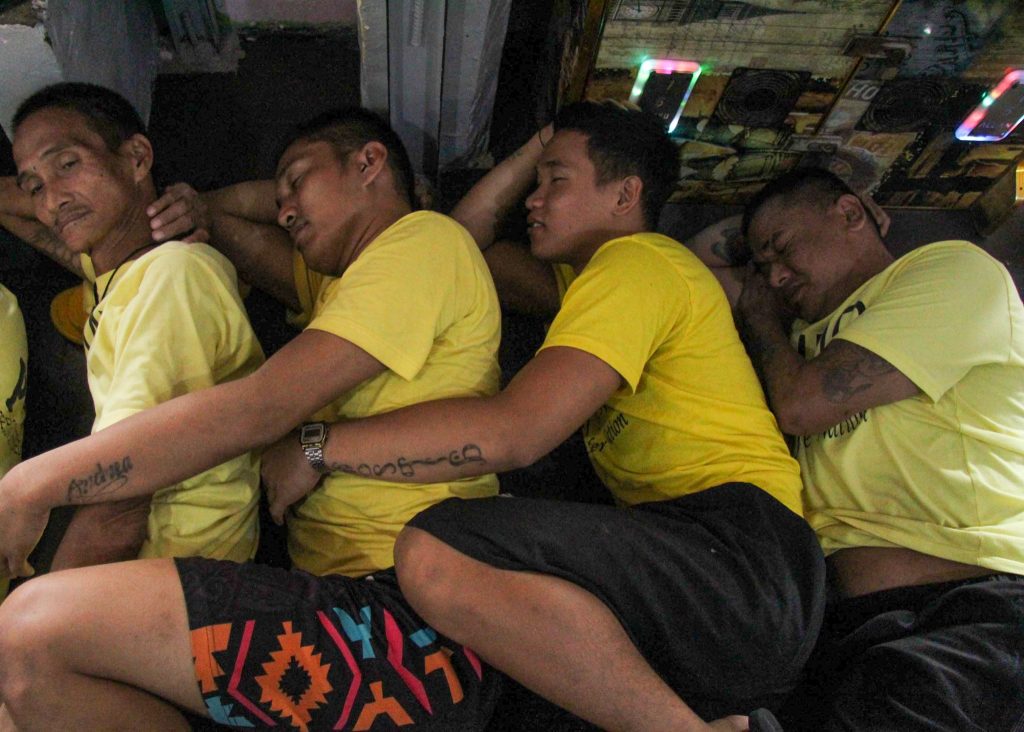
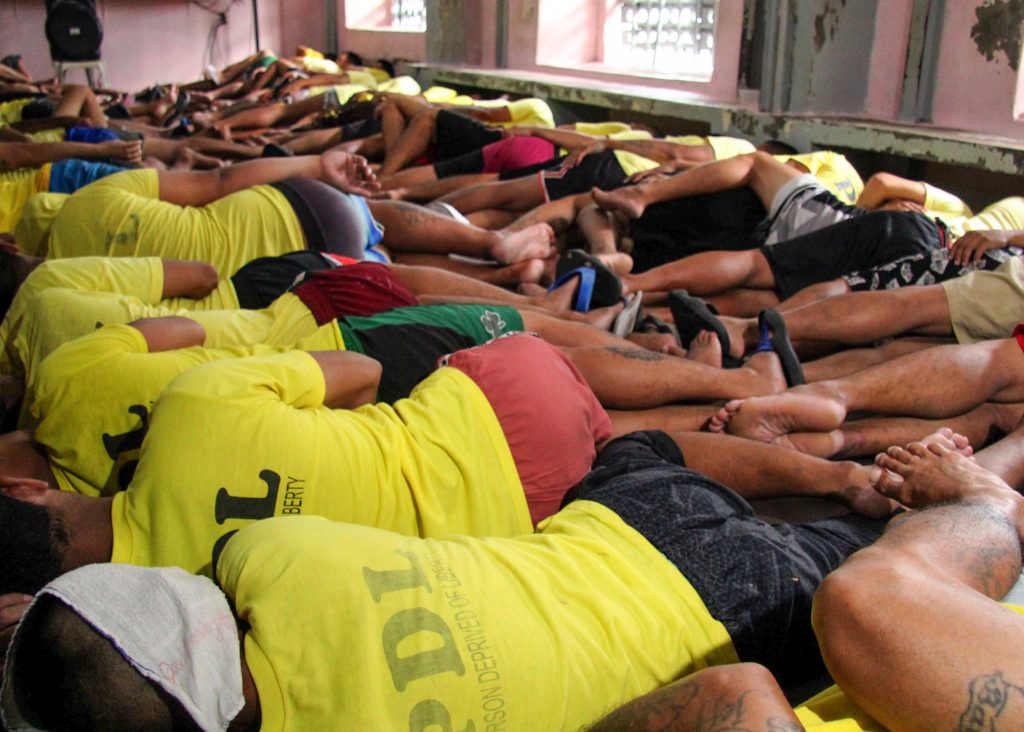
(Report and photography by Benjamin Cuaresma/AI/MNM)
By Junex Doronio
MANILA — The Supreme Court on Monday asked Vice President Sara Duterte to comment on a petition for certiorari with regards to the P125 million confidential funds spent by the Office of the Vice President (OVP) in just 11 days in 2022.
On Monday, the court released a notice dated Nov. 14, 2023, requiring VP Duterte, Executive Secretary Lucas Bersamin, and Budget Secretary Amenah Pangandaman to “comment within 10 days from notice hereof.”
To recall, the controversy of the P125-million confidential funds which was spent in just 11 days in 2022 as exposed by pro-administration ally, Marikina City Representative Stella Quimbo caused public uproar and is even believed to have caused the sudden drop of Inday Sara’s popularity in recent surveys.
“Tandaan ninyo—kung sino man ang kumokontra sa confidential funds ay kumokontra sa kapayapaan. Kung sino ang kumokontra sa kapayapaan ay kalaban ng bayan,” VP Duterte declared last October 5.
But last November 7, petitioners led by lawyers Christian Monsod, Katrina Monsod, Barry Gutierrez, and RP Santiago said the transfer of funds from the Office of the President (OP) to the OVP as confidential funds and expenses was unconstitutional.
The High Tribunal was asked to order the OVP to return the P125 million confidential funds it spent in 2022 to the government’s treasury.
(ai/mnm)
By Liezelle Soriano
The Supreme Court has sentenced two human traffickers of life imprisonment after they have been found guilty of qualified human trafficking for peddling minors for sex.
The human traffickers, namely Rizalina Janario Gumba ang Gloria Buena Rellama was convicted of qualified human trafficking under Section 4(a), in relation to Section 6(a), of Republic Act No. 9208 or the Anti-Trafficking in Persons Act of 2003, as amended by RA 10364 or the Expanded Anti-Trafficking in Persons Act of 2012.
The SC sustained the decision of the lower courts’ conviction of the said crime, specifically the trafficking of children for the purpose of prostitution.
According to SC, the accused were floor managers of a bar in Cavite where they hired victims AAA and BBB, both 15 years old, and PPP and GGG, both aged 18, and other young girls in their early 20s.
Upon the tip regarding the prostitution, undercover agents went to bar and Gumba and Rellma told the former that they could pay P1,500 to have sexual intercourse with the girls.
Few days after the undercover incident, police officers set the entrapment and rescue operation that led to the arrest of and filing of charges against the duo.
Aside from life imprisonment, Gumba and Rellama must also pay the fine of P2 million and pay the victims P500,000 for moral damages and P100,000 in exemplary damages each, both sums with six (6) percent legal interest per year.
(ai/mnm)
